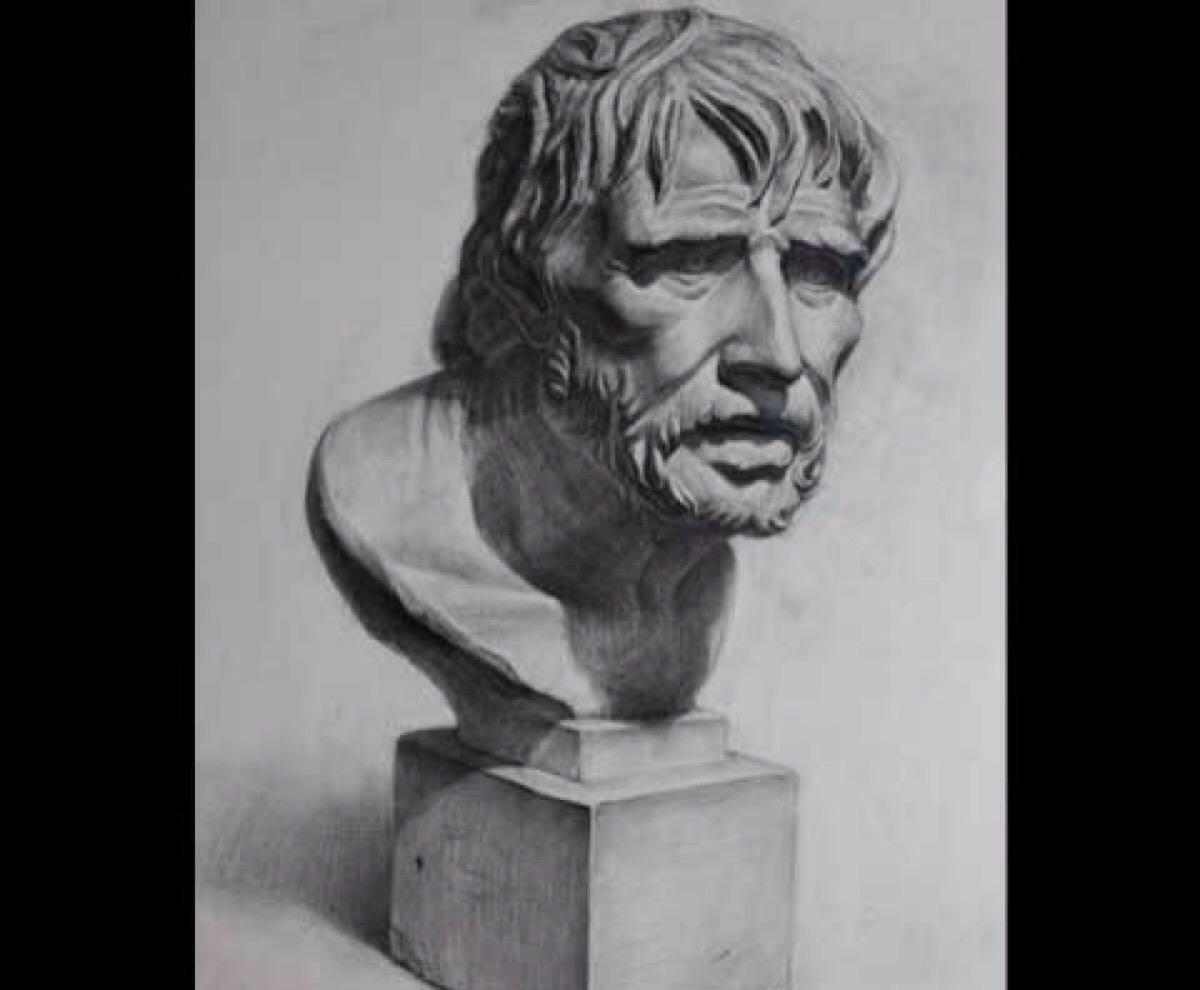In 456 BC, Aristophanes was born in Cudaternau at Attica, the region of Attica, where the current capital of Greece is located.
Aristophanes was a down-to-earth Athenian citizen and familiar with the culture and art of Athens.

Aristophanes
He also had close contact with philosophers, artists, and scientists at that time, especially philosophers such as Socrates and Plato.
However, he did not become a philosopher like these two friends.
Rather than theoretical research in the philosophical category, Aristophanes seems to prefer to turn his own thoughts into artistic creations, thereby influencing and disseminating his ideas.
He eventually became an artist.
More accurately, he became a comedy writer.
His first comedy script was staged in 427 BC.
The earliest theatrical tradition in Athens originated in the worship of Dionysus, the god of wine.
The carnival of Dionysus, the god of wine
Most of the Greek comedies at this time were political satires and social satires, arising from the era of democratic political prosperity with relatively free speech.
During the Civil War, wars were frequent and the rivalry between rich and poor within the city-state intensified.
At that time, although democratic rights were restricted, there was still some freedom of speech, so comedy intensified its critical nature and developed further.
In the fifth century BC, Athens produced three major comedic poets: the first was Clattinos, the second was Opolis, and the third was Aristophanes, and only Aristophanes passed down some complete works.
Aristophanes and Sophcross double heads
Aristophanes and his predecessors' comedies are known as old comedies and are characterized by bold fantasies and wild satire, unabashedly unbridled humor, and an apparent freedom of political criticism.
His later comedies became known as medium comedies and new comedies.
During the period of Chinese comedy, they gradually abandoned political satire and chose more satirical objects in the lives of citizens, that is, satires on society.
In the new comedy period, it no longer satirizes criticism, it only tells one romantic love story after another, full of funny nonsense, making the audience in this new world looking for new opportunities and new wealth laugh.
He is the only representative of the old comedy who has left his writings for posterity.
Aristophanes is also known as the "Father of Comedy".
He wrote 44 comedies in his lifetime and won 7 awards, but only 11 works have survived.
Even a quarter of these works have had a profound impact on future generations of comedy writers.
Aristophanes' extraordinary intellect, sharp satire, and graceful style made his work highly respected and loved by scholars during the Greek period.
Stills from Birds
Among them, "Bird" is the most unique.
The comedy "Bird" is the only surviving comedy with mythological fantasy as the theme, and it is the earliest work in the history of European literature to depict an ideal society.
It satirizes the Athenians in 415 BC, eroded by imperialist ideas, and vigorously expanded their territory in Syracuse, Sicily, Italy. It is imaginative, lyrical and witty.
Goethe once adapted it.
Plato once wrote an epitaph for him: The goddess Merlot searched for an immortal palace, and they finally discovered the spiritual house of Aristophanes.